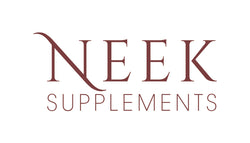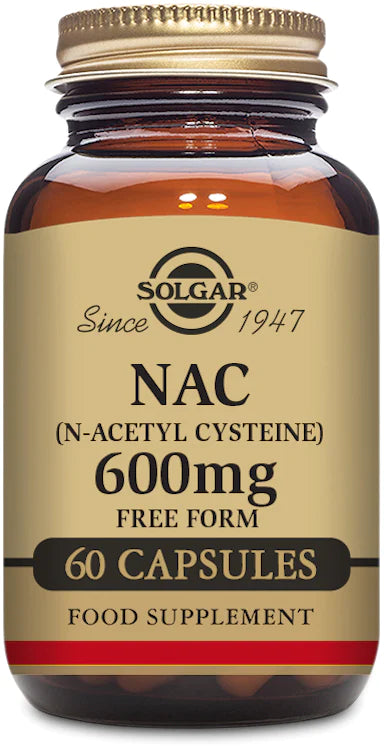N-Acetylcysteine (NAC): Benefits, Uses, and Side Effects
N-acetylcysteine (NAC) is a supplement that has gained popularity in recent years due to its potential health benefits. NAC is a form of the amino acid cysteine, which is a building block of proteins in the body. It is available in supplement form and is often used to support respiratory health, liver function, and mental well-being. In this blog post, we will explore the potential benefits and uses of NAC, as well as its side effects and safety profile.
Benefits of NAC:
-
Respiratory Health: NAC has been shown to support respiratory health by thinning mucus and improving lung function. It is commonly used to treat chronic obstructive pulmonary disease (COPD), bronchitis, and other respiratory conditions.
-
Liver Function: NAC is also used to support liver function by increasing levels of glutathione, a powerful antioxidant that helps to protect the liver from damage.
-
Mental Health: NAC has been shown to have potential benefits for mental health, particularly in the treatment of obsessive-compulsive disorder (OCD) and addiction. It may also help to reduce symptoms of anxiety and depression.
Uses of NAC:
-
Respiratory Conditions: As mentioned earlier, NAC is commonly used to treat respiratory conditions such as COPD and bronchitis. It may also be helpful in the treatment of asthma, allergies, and sinusitis.
-
Liver Support: NAC may be useful in supporting liver function and protecting against liver damage caused by toxins, medications, or alcohol.
-
Mental Health: NAC has been shown to have potential benefits for mental health, particularly in the treatment of OCD and addiction. It may also help to reduce symptoms of anxiety and depression.
Side Effects and Safety Profile:
NAC is generally considered safe and well-tolerated when taken in recommended doses. However, like any supplement, it may cause side effects in some individuals. Common side effects of NAC include nausea, vomiting, and diarrhea. High doses of NAC may also cause liver damage or interfere with blood clotting. It is important to speak with a healthcare provider before starting any new supplement, especially if you are pregnant, nursing, or taking medication.
Conclusion:
N-acetylcysteine (NAC) is a supplement that may have potential benefits for respiratory health, liver function, and mental well-being. It is generally considered safe and well-tolerated when taken in recommended doses. However, it is important to speak with a healthcare provider before starting any new supplement to ensure that it is safe and appropriate for your individual needs.
Sources:
-
De Flora S, Grassi C, Carati L. Attenuation of influenza-like symptomatology and improvement of cell-mediated immunity with long-term N-acetylcysteine treatment. Eur Respir J. 1997 Jul;10(7):1535-41. doi: 10.1183/09031936.97.10071535. PMID: 9230243.
-
Rushworth GF, Megson IL. Existing and potential therapeutic uses for N-acetylcysteine: the need for conversion to intracellular glutathione for antioxidant benefits. Pharmacol Ther. 2014 Feb;141(2):150-9. doi: 10.1016/j.pharmthera.2013.09.006. Epub 2013 Sep 28. PMID: 24080471.
-
Berk M, Malhi GS, Gray LJ, Dean OM. The promise of N-acetylcyst
-
eine in neuropsychiatry. Trends Pharmacol Sci. 2013 Feb;34(2):167-77. doi: 10.1016/j.tips.2012.11.005. Epub 2012 Dec 19. PMID: 23261342.
-
Atkuri KR, Mantovani JJ, Herzenberg LA, Herzenberg LA. N-Acetylcysteine--a safe antidote for cysteine/glutathione deficiency. Curr Opin Pharmacol. 2007 Aug;7(4):355-9. doi: 10.1016/j.coph.2007.06.010. Epub 2007 Jul 13. PMID: 17627863.
-
Kelley J, Brady K, Ramakrishnan V, Sullivan B, Hartman G, Frye MA. N-Acetylcysteine for the Treatment of Psychiatric Disorders: A Review of Current Evidence. BioMed research international. 2015;2015:246948. doi:10.1155/2015/246948
-
Lee BK, Kim YK. The roles of N-acetylcysteine in attenuating the harmful effects of alcohol consumption. J Neurosci Res. 2021 Jan;99(1):146-155. doi: 10.1002/jnr.24742. Epub 2020 Sep 4. PMID: 32881239.
-
de Araújo JA, Ferreira AP, de Sousa Neves J, Sousa Melo SR, de Sousa Neto BP, Pereira LJ. N-acetylcysteine attenuates the cytotoxicity induced by the heavy metals lead and cadmium in C6 glioma cells. J Appl Toxicol. 2013 May;33(5):413-23. doi: 10.1002/jat.1762. Epub 2012 Jul 27. PMID: 22837026.
-
Hamid H, Ali S, Wu Z, et al. The therapeutic potential of N-acetylcysteine in neurodegenerative diseases. Aging (Albany NY). 2019;11(18):7184-7211. doi:10.18632/aging.102271
-
Maes M, Galecki P, Verkerk R, et al. A review on the oxidative and nitrosative stress (O&NS) pathways in major depression and their possible contribution to the (neuro)degenerative processes in that illness. Prog Neuropsychopharmacol Biol Psychiatry. 2011 Jun 1;35(4):676-92. doi: 10.1016/j.pnpbp.2010.05.004. Epub 2010 May 22. PMID: 20493934.
-
Schmitt B, Vicenzi M, Garrel C, Denis FM. Effects of N-acetylcysteine, oral glutathione (GSH) and a novel sublingual form of GSH on oxidative stress markers: A comparative crossover study. Redox Biol. 2015 Oct;6:198-205. doi: 10.1016/j.redox.2015.07.008. Epub 2015 Jul 24. PMID: 26204055.
-

